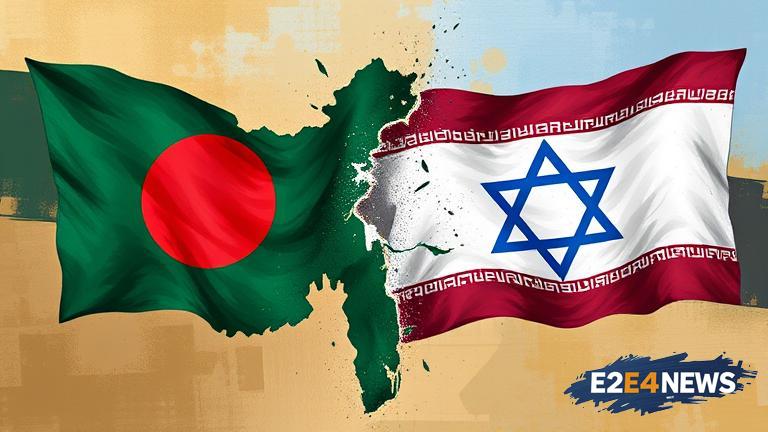The Iran-Israel conflict has been a longstanding and complex issue, with both countries engaging in a war of words and military actions. Recently, the conflict has escalated, with Iran launching attacks on Israeli targets and Israel responding with force. This situation has significant implications for the Middle East region and beyond. Bangladesh, as a country with its own set of geopolitical challenges, can learn valuable lessons from this conflict. One key takeaway is the importance of maintaining good relations with neighboring countries. Bangladesh shares borders with India and Myanmar, and any conflict with these countries could have devastating consequences. Therefore, it is essential for Bangladesh to prioritize diplomacy and dialogue in its foreign policy. Another lesson that Bangladesh can learn is the need to diversify its economy and reduce its dependence on a single country or region. Iran’s economy has been severely impacted by the conflict, and Bangladesh can avoid similar pitfalls by promoting trade and investment with multiple countries. Furthermore, the Iran-Israel conflict highlights the importance of investing in national security and defense. Bangladesh has been increasing its military spending in recent years, but more needs to be done to ensure the country’s security and sovereignty. The conflict also underscores the need for Bangladesh to engage in international diplomacy and play a more active role in regional and global affairs. By doing so, Bangladesh can build alliances and partnerships that can help protect its interests and promote peace and stability in the region. Additionally, the Iran-Israel conflict demonstrates the importance of addressing internal conflicts and promoting national unity. Bangladesh has its own set of internal challenges, including political polarization and extremism, which need to be addressed through dialogue and inclusive governance. The conflict also highlights the need for Bangladesh to invest in education and awareness-raising programs to promote tolerance and understanding. Moreover, the Iran-Israel conflict shows that even the most seemingly intractable conflicts can be resolved through diplomacy and negotiation. Bangladesh can learn from this example and seek to resolve its own conflicts and disputes through peaceful means. In conclusion, the Iran-Israel conflict offers many valuable lessons for Bangladesh, from the importance of diplomacy and national security to the need for economic diversification and internal unity. By studying this conflict and applying its lessons, Bangladesh can promote peace, stability, and prosperity in the region and beyond.
